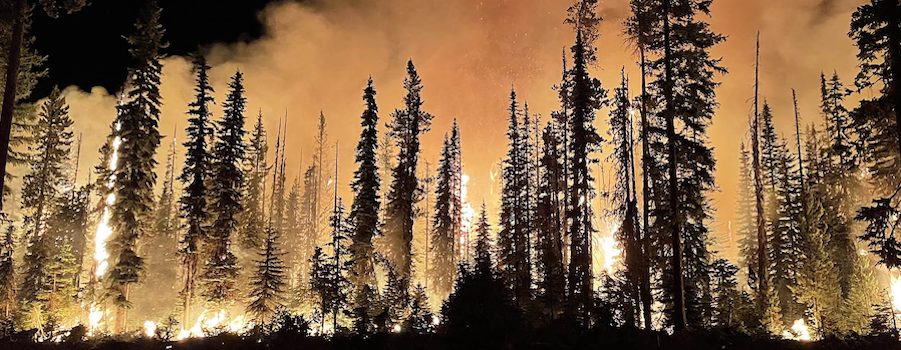
GCSC affiliate faculty Bill Anderegg, Sara Grineski, Tim Collins and colleagues have published a study looking at the potential effects of wildfire and tree mortality on property values in these areas in the U.S.
Earth’s rapidly changing climate is taking an increasingly heavy toll on landscapes around the world in the form of floods, rising sea levels, extreme weather, drought and wildfire.
Also at growing risk are the values of the property where these hazards are projected to worsen, according to a new study by University of Utah scholars. The research team, led by biology professor William Anderegg, attempted, for the first time, to quantify the value of U.S. property at risk in forested areas exposed to increased wildfire and tree mortality associated with climate stresses and beetle infestation.
“As a society, we have this tremendous capacity to deal with and minimize, adapt to and mitigate risk,” said Anderegg, who heads the university’s Wilkes Center for Climate Science & Policy. “We have insurance policies, we have seat belts in cars and airbags. All of these are to mitigate the risk of getting in a car accident or having a fire burn down your house. But fundamentally, all these tools to mitigate risk are predicated on knowing what the risks are and capturing how those risks might change.”
Climate change is a “game changer,” according to Anderegg, because it promises to elevate threats, yet we don’t know exactly where, when or by how much.
“This is a really clear case of where we need cutting-edge science and tools to tell us what are the risks and how are they possibly or likely to change this century due to climate change,” said Anderegg, who studies forest ecology. “Climate change is going to drive wildfire and disturbance risks up and is already driving them up. Insurers leaving states like California really underscores that.”
To help identify climate-related risks to property values, Anderegg teamed with faculty from the College of Social and Behavioral Science—geographer Tim Collins and sociologist Sara Grineski—and others outside Utah. Published Aug. 17 in the journal Environmental Research Letters, their study found more and more U.S. property will be exposed as climate change effects proliferate on forests.
Story excerpt from AtTheU. Read the full story here.
